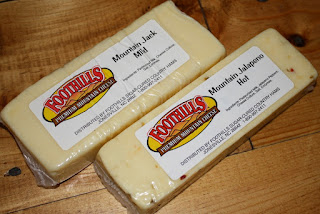FOOD & DRINK - FEBRUARY 4, 2012
Get Your Goat On
See for yourself why everybody's new favorite meat has two
horns and a goatee
![[GOAT]](http://si.wsj.net/public/resources/images/OD-AO526_GOAT_DV_20120202191656.jpg) James Ransom for The Wall Street Journal, Food
Styling by Karen Evans, Prop Styling by DSM
James Ransom for The Wall Street Journal, Food
Styling by Karen Evans, Prop Styling by DSM
YEAR OF THE GOAT | Scott Conant's Moist-Roasted Capretto
with Spike Mendelsohn's Date Sauce on the side.
After years of celebrating boutique meats such as Berkshire pork and heritage
turkey, chefs have fallen hard for another protein. Goat has been embraced
everywhere from sustainability-focused restaurants like Chez Panisse in
Berkeley, Calif., and Blue Hill in New York to "Top Chef" winner Stephanie
Izard's Chicago spot Girl and the Goat. The meat has become so popular among
chefs that many now complain about not being able to source enough of it.
A mainstay in Jamaican, Mexican and Arab cuisine, goat can seem like the
ultimate mystery meat for American home cooks. For all our love of goat cheese
and our growing interest in goat yogurt and butter, we still think of goats as
cute little horned creatures with stubborn personalities. It's just not part of
our food culture.
Katy McLaughlin on Lunch Break has a home cook's guide to
buying, prepping and cooking goat, the meat of the moment.
Anyone who loves red meat but has become bored with beef and lamb would be
remiss not to give goat a try. It is healthy, hearty meat, with a third fewer
calories than beef and half the saturated fat of chicken. It is also delicious,
with a flavor often described as being close to veal and lamb. "It's like a
cross between dark-meat turkey and pork," said Mark Scarbrough, co-author of the
cookbook "Goat: Meat, Milk, Cheese," which came out last year. "It's more savory
and has a richness and deep complexity."
Given its firm texture, goat is particularly wonderful when cooked in a
moist-roasting style, where it softens and infuses the pan juices with its
robust taste.
If the name of the meat is just too "Three Billy Goats Gruff" for you, call
it "capretto" (Italian for "kid"), like chef Scott Conant does at his five
Scarpetta restaurants, where he serves it whenever he can find a good supply of
extra-tender, young goat.
Rancher Bill Niman, who started Niman Ranch, a boutique meat company with
which he's no longer involved, said that goat is not only fantastic tasting, but
a great environmental choice because goats thrive on pasture that cows don't
like—"so it's complementary to cattle ranching."
Very young, very tender goat lends itself to pretty much any preparation that
would suit beef or lamb. Steven Rojas at Chez Papa Resto in San Francisco makes
a silken "pancetta" from goat meat. He serves it thinly sliced over arugula and
hazelnuts. Girl and the Goat's menu features an array of goat preparations,
among them mousse, belly, carpaccio, smoked goat and roast leg.
“Very young, very tender goat lends itself to
pretty much any preparation that would suit beef or lamb. ”
If you want to cook goat at home, the first challenge is sourcing the meat.
Whole Foods carries young goat in the Atlanta, North Carolina, San Francisco Bay
and Washington, D.C., areas and plans to expand to more regions by the end of
the summer. If you're lucky, you'll find the meat at a local farm or farmers'
market, or you'll locate a butcher who can special-order it for you. It can also
be found online through some boutique meat sellers, though at a steep premium.
Most big cities also stock goat meat in ethnic grocery stores, such as halal,
Mexican, Indian and Greek markets.
Paul Canales began working with goat in 1999 while chef at Oakland's Oliveto.
In the early years, he sometimes landed older and tougher animals, he said,
though later he began getting excellent meat from small-scale local farms. Now
that he is "a civilian," (Mr. Canales is currently setting up his own
restaurant), he buys goat for his family from a halal market in Oakland. "They
have amazing goat, and it's like $5 a pound," Mr. Canales said. He injects the
leg with a red-wine-and-honey marinade and roasts it, makes medallions out of
the leg and sautés them, and also moist-roasts goat shoulders.
Spike Mendelsohn, the chef behind Washington, D.C., restaurants Good Stuff
Eatery and We, The Pizza, said he used to buy goat from Greek butcher shops in
Queens, when he lived in New York. His Greek family has a long tradition of
spit-roasting marinated goat leg. He likes to make stock from the bones.
There is, however, a complication with buying goat in ethnic grocery stores:
You need to ask the right questions. Just over 40% of U.S. goats are raised
specifically for their meat, according to the Department of Agriculture. Another
10% percent are dairy goats. The best-tasting breeds that are typically bred for
meat are Boer, Spanish and Kiko, said Mr. Niman, the rancher. The remaining half
of the country's goats, which are bred and raised for other purposes, including
work as brush-clearers, can end up behind the butcher glass.
Goats bred for milk or their janitorial talents may be slaughtered when
they're older, which yields meat that can be tough and gamey.
If you can't locate the platonic ideal of goat meat, you can "tame"
stronger-flavored cuts with a long bath in wine, olive oil and aromatics, plus a
little salt, Mr. Canales said. He'll leave a gamey piece of goat in this brew
for about five days, allowing natural enzymatic action to tenderize the meat,
while the marinade keeps bad bacteria at bay. The next step is to subject the
meat to a long, slow cooking process.
The last important factor to cooking goat is maintaining the right mindset.
"Instead of trying to hide it, you really want to celebrate the flavor," Ms.
Izard said.
To get the best meat, here are the questions to ask your butcher.
1. What breed of goat is this? You want to hear Boer,
Spanish, Kiko, Savanna or a cross between them. Failing that, you want to hear
that the animal was raised for meat.
2. How old was this animal? You want to buy goat that is no
older than a year; some chefs use nine months as the cut-off. In Latin American
markets, the term for young goat is "cabrito."
3. How much did this animal weigh? Less than 60 pounds is
ideal.
4. What kind of animal was this? A kid, wether or doeling is
good. A nanny or billy goat—also called a buck—means it could be tough and
gamey.
Scott Conant's Moist-Roasted Capretto
Total Time: 2½ hours, plus one day marinating;
Serves: 4-6
Ingredients
½ cup extra-virgin olive oil
8 whole garlic cloves
5 sprigs fresh rosemary
Pinch crushed red pepper flakes
1 baby goat leg and shoulder, about 5 pounds
Kosher salt, to taste Freshly ground black pepper, to taste
3 tablespoons vegetable oil
6-8 cups chicken broth
What To Do
1. Fill a large, sealable plastic bag with olive oil, 6
garlic cloves, 3 rosemary sprigs, red pepper flakes and goat. Press out all the
air, seal, and refrigerate for 24 hours.
2. The next day, brush marinade off meat. Lightly season
meat with salt and pepper.
3. Preheat oven to 350 degrees. Heat a roasting pan to very
hot, add vegetable oil and meat, browning well on each side. Toward the end of
the browning process, add remaining rosemary sprigs and garlic cloves. Add stock
and allow to warm for a few minutes over high heat.
4. Place pan in the oven and cook, uncovered, for about 2
hours, periodically turning meat and basting with the liquid. The liquid should
reduce and caramelize on the skin of the goat.
5. Remove from oven. Cool slightly. Remove the bones and
cartilage from the meat and discard. Cut the meat into bite-size pieces. Strain
sauce over the meat and serve.
Variation for Young Goat
If you can't find baby goat, use the 4-pound leg of a goat a year or younger
and make these adjustments.
-Increase the liquid to 12 cups.
-Decrease cooking temperature to 325 degrees.
-Cook for 2-2½ hours, until internal temperature is 155 to 160 degrees.
-While the meat rests, reduce the sauce by half.
Variation for Older Goat
If you can't find the tiniest baby goat, you can still make delicious dishes
with the leg of a goat aged one year or younger. Start a few days in advance of
making your recipe with this variation of a game marinade from Paul Canales,
longtime chef at Oliveto in Oakland who is now working on opening his own
restaurant. It allows enzymatic action to tenderize the meat.
Ingredients
1 onion, sliced
1 carrot, sliced
1 celery rib, sliced
2 garlic cloves, sliced
2 bay leaves
½ cup extra virgin olive oil
2 teaspoons Kosher salt
¼ cup water
1 teaspoon whole peppercorns
¼ cup Champagne vinegar
1 cup white wine
1 leg of goat, 4 to 5 pounds
What To Do
1. Place all of the ingredients except the vinegar, wine and
goat into a small sauce pot and bring to a boil. Cook for 5 minutes, remove from
heat, and add the vinegar and the wine. Allow marinade to cool completely.
2. When cool, pour marinade in a non-reactive dish and add
the goat leg. Roll the leg in the marinade until well coated, cover with plastic
wrap, and place in refrigerator. Marinade for at least 48 hours or up to five
days.
3. Dry the leg well and proceed with your recipe.
Spike Mendelsohn's Date Sauce
Mr. Mendelsohn spent his childhood vacations in Greece, where his family
roasted whole goats. The slightly gamey flavor of goat is beautifully offset by
this date sauce, which is sweet, spicy and "full palate" enough to stand up to
the meat, Mr. Mendelsohn says.
Ingredients
2 cups dates
2 teaspoons olive oil
¼ cup chopped fresh thyme
1 tablespoon butter
½ shallot, roughly chopped
½ garlic clove, sliced
¼ teaspoon cinnamon
1 teaspoon balsamic vinegar, the older the better
1 cup red wine
½ cup goat or chicken stock
Salt and pepper, to taste
What To Do
1. Preheat oven to 400 degrees. Toss 1 cup dates with oil
and thyme and roast for 10 minutes.
2. Melt butter in a wide saucepan. Add shallots and garlic
and sauté until soft. Add cinnamon and roasted dates and toss. Lower heat to
medium and add balsamic vinegar, then add wine and stock and cook at medium heat
for about 15 minutes, until liquid is reduced by half.
3. Remove from heat. Let cool to room temperature and then
purée in a blender or food processor. Add salt and pepper, to taste.
4. Chop reserved dates and add to finished sauce.
Write to Katy McLaughlin at
katy.mclaughlin@wsj.com












![[GOAT]](http://si.wsj.net/public/resources/images/OD-AO526_GOAT_DV_20120202191656.jpg) James Ransom for The Wall Street Journal, Food
Styling by Karen Evans, Prop Styling by DSM
James Ransom for The Wall Street Journal, Food
Styling by Karen Evans, Prop Styling by DSM





















